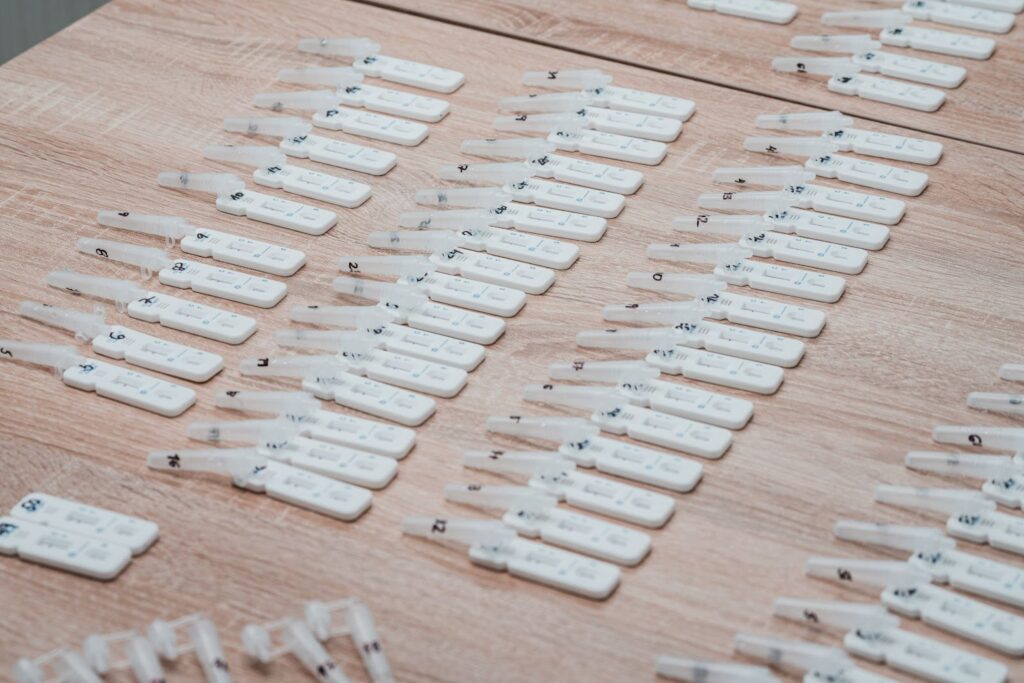In brief
- Health NZ has over $400M worth of unused COVID tests (RATs).
- About a third are expiring now and the rest in early 2024.
- Government chose to control the NZ RAT market, to stop potential price gouging.
- But waste for unused RATs likely to be $80-$100 for each NZ resident.
Over $400M worth of RATs
Health NZ has almost 60 million Rapid Antigen Tests (RATs) stockpiled, which, ACT says, at almost $9 each, is about $531m. Health NZ claims the figure is closer to $410m. Regardless, about 17.8 million RATs worth about 30% of the total($120M-$160M) are either expired or will expire by the end of July 2023. The remaining 42 million RATs will expire by early 2024.
The Government also revealed it paid roughly $10,000 a day (more than $44m total) to a single provider to store the nearly 18 million unused RATs, along with personal protective equipment (PPE), from January 2022 to April 2023. This is an extraordinary sum, say $440 per M2, for 100,000M2. That looks high, to this writer, who has some real estate experience, by a factor of at least 10.
RATs were mostly purchased in early 2022, with some dating to late 2021. It is noteworthy that, by late 2021, the less deadly Omicron variant had emerged and there was good reason to hope the end of the COVID crisis was on the horizon.

“Mind-boggling”
ACT’s deputy leader and health spokesperson, Brooke van Velden, said the mismanagement was “mind boggling” and shows disregard for how taxpayers’ money is used.
“It’s almost half of Pharmac’s annual budget. It could have paid for over 7,000 counsellors’ annual salaries. It could have given a $10,000 pay rise to New Zealand’s 54,000 nurses.”
It should be noted that van Velden’s numbers are about 30% high if the Health NZ estimate is used instead of Act’s estimate from before Health NZ responded. However, the point is the same about the enormous waste.
“Instead it has been sent offshore to RAT producers in exchange for 60 million plastic test kits which will likely never be used.”
“Don’t hold your breath”
Health Minister Ayesha Verrall said she told Health NZ to “get on with” finding ways to recover costs. They say they’re “actively scanning” ways of “re-purposing, alternative uses or recycling” the RATs.
“Don’t hold your breath” was the message in an NZ Herald editorial, which said no alternative to the landfill had yet been found. They also said the Government had overlooked NZ sourced alternatives to the RATs at the time of their purchase.
The Ministry of Health’s defence makes no sense
Verrall says New Zealand couldn’t afford to be ill prepared amid the uncertainty around COVID at the time.
“The decision was made to ensure people were protected from price-gouging and make sure everyone had access to RATs to keep themselves safe,” Verrall said. But shouldn’t thinking have been evolving by then?
If the population is on the hook for $80-$100 each for RATs, were Kiwis actually spared from price gouging?
Private companies were unable to handle the inventory issue because of the Government
Businesses were essentially barred from acquiring RATs until late 2021.
Labour had been panic-buying RATs while scolding Kiwis for panic-buying toilet paper, but private importation of RATs should have been allowed early on, said van Velden,
“We could have saved all of this wasteful spending by just allowing private companies to import RATs when New Zealanders wanted them.”
“They would have carried that risk. Instead the Government decided everyone should have them but only the Government would import them.”
At the time, the Government asked suppliers to prioritise their orders over those of private companies. Many companies were left in the lurch because they were relying on the tests to keep things, like food supplies, functioning smoothly.
National’s Chris Bishop said of the Government’s procurement policy that “it just beggars belief that I can’t go to a supermarket now and buy a rapid antigen test before I go visit my grandmother in a retirement home”.
ACT leader David Seymour had warned then that the Government should not be the distributor of supplies.





















